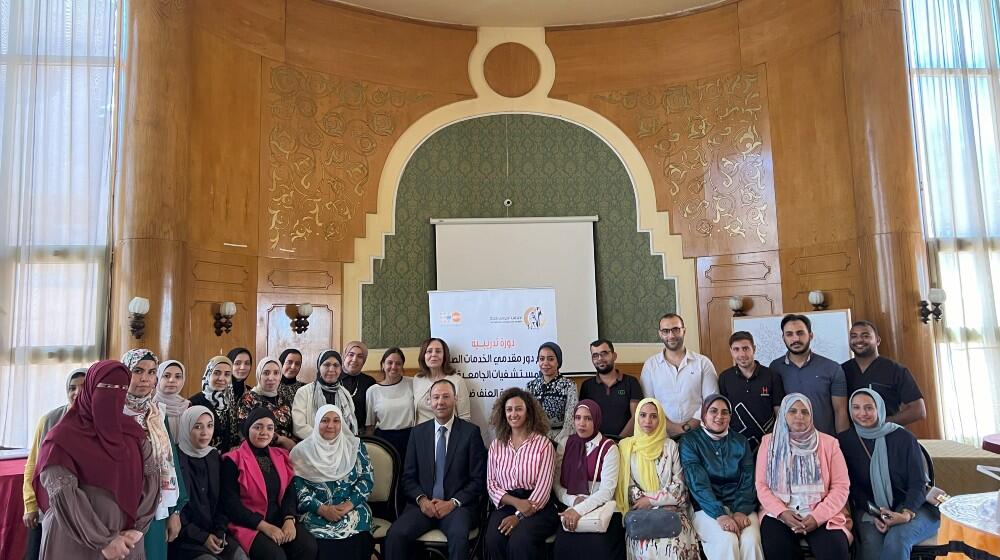UNFPA in partnership with the National Council for Women and with the support of USAID and the Italian Agency for Development Cooperation (AICS) conducted two training workshops in July for medical service providers at Fayoum and Port Said University hospitals to equip them with needed skills to support women who have been subjected to violence, as both university hospitals prepare to inaugurate Safe Women Clinics within their facilities this year.
The Safe Women Clinics are medical response clinics offering comprehensive services for women subjected to violence, including medical services, examination, psychological first-aid, internal hospital referral as well as multi-sectoral referral to legal and social services in coordination with the National Council for Women.
The workshops offered participants the tools needed to provide comprehensive care to survivors of gender-based violence (GBV) against women and girls. They featured informative sessions and practical exercises led by experts in the field that included an overview of national efforts to combat violence against women, setting the stage for a discussion on various forms of violence, including physical, sexual, and psychological abuse.
Participants were also introduced to the WHO-UNFPA clinical guidelines on the health response to GBV with a focus on psychological first line support, the design of a safety plan, and the criteria for service provision in the clinics. Other sessions focused on service provision standards, risk assessment, and safety planning, with practical case studies for hands-on experience.
The workshops also offered more insight into the comprehensive response approach to GBV, including the legislative framework related to violence against women, presented by the council’s National Coordination Unit’s legal expert Judge Ahmed El-Naggar, with a focus on the penal code. Another session offered more information on the role of the Women’s Complaints Office in addressing cases of GBV, and its procedures for supporting women in reporting violence.
A key segment during both training workshops was dedicated to addressing the critical role of forensic medicine in GBV cases. Dr. Dina Shoukry, Professor of Forensic Medicine and Clinical Toxicology at the Faculty of Medicine, Cairo University and chair of Forensic Medicine Armed Force Collage, covered essential steps such as preparing women for examination, collecting forensic evidence, and conducting examinations. The focus on a survivor-centered approach highlighted the importance of safety, confidentiality, and respect. This segment was vital for enhancing medical professionals' ability to integrate forensic protocols into their care, support legal processes, and advocate for justice.
In partnership with UNHCR, a session was conducted during both workshops to present and highlight the needs of women at risk of GBV among vulnerable groups such as refugees and displaced people affected by conflict. This session sheds light on their specific barriers, and the role of the medical sector to ensure their access to medical, psychological as well as referral to specialized services.
To date, UNFPA has supported the establishment of 15 Safe Women Clinics in University Hospitals and a total of 18 clinics under the Ministry of Health at the Primary Health Care level. The ongoing expansion allows UNFPA and NCW to cover additional governorates, and to reach a wider number of women at risk or exposed to GBV with comprehensive services.



